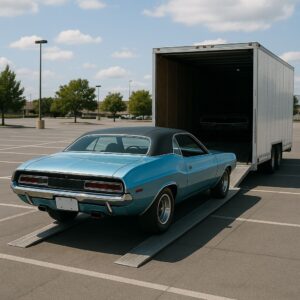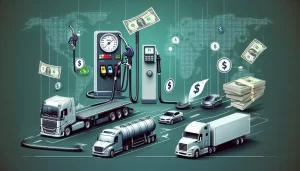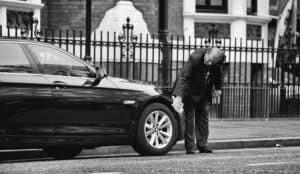
How Many Cars Fit on a Car Hauler? Trailer Types Explained
The number of vehicles a car hauler can carry depends on several factors, including the trailer’s size and design, whether it’s open or enclosed, and the distance of the shipping route. Here’s an overview of common trailer types used in the car shipping industry.
Single-Level Haulers: Best for Trucks, Vans, and SUVs
Characteristics and Capacity
Single-level haulers are designed to transport larger vehicles such as trucks, SUVs, and vans. Their structure allows for safe, stable loading and transit of bigger units.
Capacity Range
Typically, a single-level hauler can carry 3–5 vehicles, depending on size and weight. These haulers provide ample space and ensure each unit is securely fastened.Ideal for Medium-Distance
Shipping Single-level haulers are commonly used for medium-range routes—for example, from North Carolina to Florida—balancing efficiency with the needs of larger vehicles.Two-Level Haulers: Max Capacity for Long-Distance Trips
Double-Deck Design
Two-level (or double-decker) haulers are standard in the auto transport industry, especially for long-distance shipping.
Transporting More Vehicles at Once
These haulers typically carry 7–10 cars, depending on vehicle size. Their double-deck structure maximizes space, making them ideal for bulk shipments.
Cost-Efficient for Long Hauls
Two-level haulers are often used for coast-to-coast transport, reducing cost per vehicle and improving efficiency for both shippers and customers.
Enclosed Two-Car Trailers: Protection for High-Value Vehicles
Enclosed for Added Protection
Enclosed trailers are ideal for transporting classic, luxury, or exotic cars. They shield vehicles from weather, debris, and road hazards./p>
Tailored for Valuable Cargo
Though often used for shorter distances, these trailers are also suitable for long hauls when maximum protection is a priority.
Capacity and Customization
Most enclosed trailers hold one or two cars, depending on their size and the trailer’s specifications. Custom features—like climate control or lift gates—can be added to meet specific needs.
Enclosed Two-Car Trailers: Protection for High-Value Vehicles
DOT Requirements
All haulers must comply with Department of Transportation (DOT) regulations regarding weight limits, tie-down requirements, and dimensions.Ensuring Safe Transport
Regular inspections and maintenance are essential. Staying compliant not only ensures safety but helps prevent fines and delays.Choosing the Right Hauler: Key Considerations
Vehicle Size & Value
Larger vehicles or those requiring more protection (like antique or luxury cars) may require specific hauler types.Distance & Route
Longer trips may justify a higher-capacity hauler to reduce trips and cost per car.Customer Preferences
Some customers prioritize protection and may opt for enclosed trailers even at a higher price point.Other Factors That Influence Car Hauler Use
Environmental Impact
Different trailer types affect fuel consumption differently. Open haulers generally have a lower carbon footprint compared to enclosed units.Technology Integration
Modern haulers often include GPS tracking, electronic logging devices (ELDs), and enhanced tie-down systems to improve security and transparency.Cost Differences
Enclosed shipping is more expensive due to the added protection. Customers must weigh cost versus value depending on their vehicle’s worth and destination.FCT Transport: Safe, Efficient Car Hauling Solutions
Single-level haulers are ideal for larger vehicles, two-level haulers maximize efficiency for long-distance transport, and enclosed trailers offer premium protection for high-value cars. At FCT Transport, we help you navigate these choices with expert guidance and DOT-compliant service. Whether you’re shipping one car or an entire fleet, contact FCT Transport for a safe, reliable, and cost-effective vehicle transport solution tailored to your needs.



